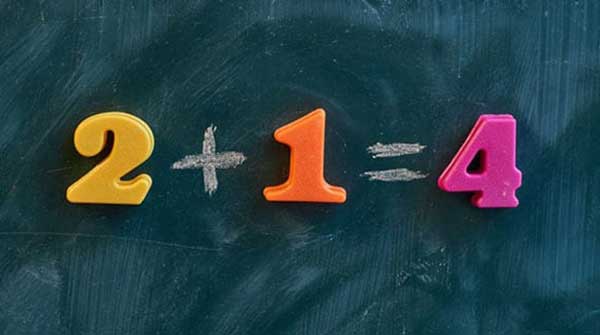Education in STEM skills is essential not just for the future of our kids but also if we are to tackle global threats
 Many students harbour a distaste for exams and tests, a sentiment often countered by teachers who argue that exams and tests are a necessary part of learning.
Many students harbour a distaste for exams and tests, a sentiment often countered by teachers who argue that exams and tests are a necessary part of learning.
Curiously, we recently witnessed a role reversal, with teachers also expressing their reluctance to take tests. This became evident in Ontario when instructors were mandated to undergo testing to showcase their proficiency in mathematics, specifically at the high school level. In response, some teachers resorted to legal action, asserting that the test was unfair and unjustified for various reasons.
Fortunately, the court saw nothing wrong with asking those responsible for shaping young minds to demonstrate a foundational understanding of this crucial subject, and not just for those teaching math. The quantitative and analytical skills one learns in mathematics are no longer an isolated subset of education that can safely be bypassed by all except perhaps those going into a field like engineering.
 |
| Related Stories |
| Public schools failing to produce enough STEM graduates
|
| Canada faces a serious shortage of STEM skills
|
| Program helps thousands of women see themselves in STEM careers
|
If Canada and other Western countries are to be able to maintain and advance the level of civilization that we now enjoy, upcoming generations must be well-versed in STEM disciplines, which encompass science, technology, engineering, and mathematics. Let us not forget that it was people in STEM fields who developed the vaccines that turned COVID-19 from a deadly plague into just another manageable disease.
But it is not just in healthcare where STEM skills can save lives. They are now vital in waging wars, too many of which are currently raging. Today’s wars are fought very differently from those of the 20th century.
Now, we have sophisticated, highly automated computer-guided weapons. They are very costly, especially considering the short time between their production and their destruction. As clearly demonstrated in Ukraine, supplying a fighting army is a major expense.
The number of people needed in today’s armies can be smaller, which is a good thing, but soldiers now must be able to use much more sophisticated armaments and communication devices. And the soldiers on the battlefield are not necessarily the ones who will win or lose the war.
The computer-operated weapons and drones that make up an ever larger share of the means of waging war need STEM-based designers and operators. But even they are one level removed from those who might ultimately claim victory.
Electronic-based weaponry’s operational capabilities hinge on electronic software and communication systems, no different from all the other systems we presently depend upon. The Internet serves as just one example of this shared reliance.
Russia, the present adversary in Ukraine, faces challenges in maintaining adequate troop levels and procuring or acquiring sufficient physical weaponry for the ongoing conflict. Nonetheless, there is a crucial aspect of modern warfare, grounded in necessities, in which they might be better equipped than any other nation, potentially even surpassing the United States: a reservoir of STEM-based human capital. These individuals excel in functioning within the demands of the 21st century.
Ever since the Communist takeover in 1917, Russian education has not earned a reputation for emphasizing liberal arts. However, it has consistently championed engineering and the sciences. The limited options for advancement led many bright people to choose these fields.
Russia is now using its strength in this area to move the Ukrainian conflict into an area where it has an excellent chance of winning. Destroying the electronic infrastructure that enables drones and other automated weapons to function renders them useless. Messing up the automated components of power systems can knock out whole societies. Russia is now doing its best in this area.
Inflicting such damage requires nothing more than a group of sophisticated and dedicated hackers who can rise to the challenge of breaking into others’ systems. With its STEM-based educational structure, Russia has plenty of those sorts of individuals.
Furthermore, Russia is not limiting this talent pool to the conflict in Ukraine. It has come under suspicion of influencing the results of elections in Canada and elsewhere. Reports have surfaced regarding cyber intrusions into automated agricultural systems within Canada. These intrusions have demonstrated the capability to cause significant harm, such as raising temperatures to endanger entire livestock populations or increasing water flow that would decimate entire crop yields.
The only solution to these threats lies in establishing our own team of committed analysts capable of safeguarding our systems. They will have to have a good basis in high school math.
Dr. Roslyn Kunin is a public speaker, consulting economist and senior fellow of the Canada West Foundation.
For interview requests, click here.
The opinions expressed by our columnists and contributors are theirs alone and do not inherently or expressly reflect the views of our publication.
© Troy Media
Troy Media is an editorial content provider to media outlets and its own hosted community news outlets across Canada.

